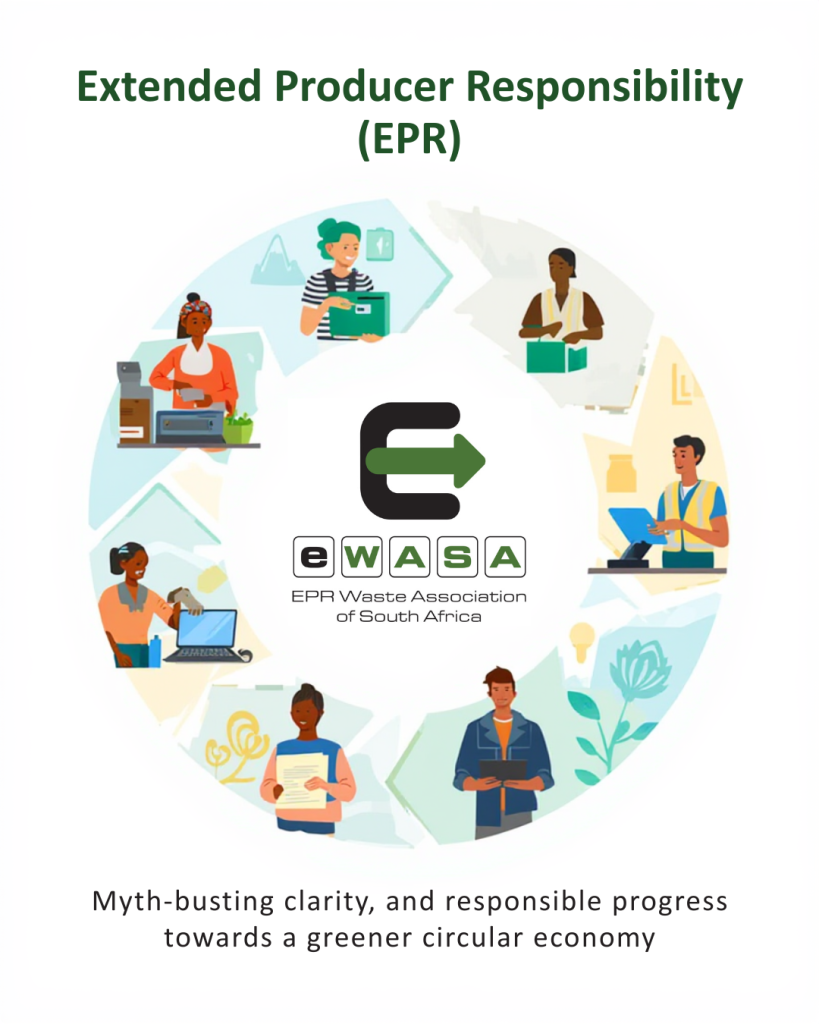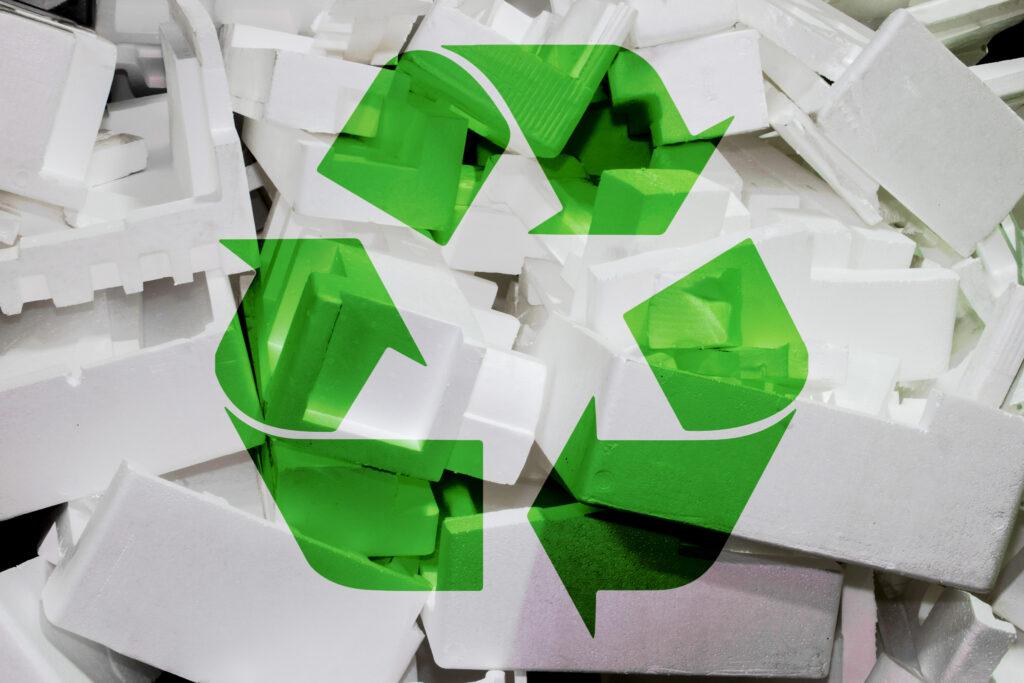Common Misconceptions About EPR in South Africa
Extended Producer Responsibility (EPR) is reshaping waste management in South Africa. Introduced through Section 18 of the National Environmental Management: Waste Act, it compels producers, importers, and brand owners to take accountability for their products across the entire lifecycle, from design to end-of-life recovery.
Despite its growing implementation, numerous misconceptions about EPR persist in South Africa. These misunderstandings can hinder compliance, slow investment in recycling infrastructure, and limit the country’s progress toward a circular economy.
Understanding the facts about EPR is essential for both businesses and consumers. As South Africa accelerates its transition toward a circular economy, misconceptions can create confusion, hinder compliance, and slow progress on sustainability goals.
Clear knowledge of how EPR works empowers producers to meet their legal obligations effectively and enables consumers to make informed, environmentally responsible choices. By dispelling these myths, we can build stronger partnerships between industry, government, and the public.
1. “Recycling Is Too Expensive for South Africa”
A widespread myth is that South Africa cannot afford large-scale recycling or EPR-driven waste management. This misconception overlooks the fact that recycling is an economic enabler, not a financial burden.
EPR schemes channel producer fees into infrastructure, job creation, and waste formalisation, generating long-term socio-economic returns. eWASA notes that EPR investment leads directly to:
- Job creation and community upliftment
- SMME development and beneficiation of the waste stream
- Infrastructure investment that strengthens the recycling economy
The idea that recycling is too expensive ignores the far higher costs of inaction: environmental damage, resource loss, and landfill overuse.
2. “Joining a PRO Is Optional”
Another EPR compliance myth is that joining a PRO like eWASA is voluntary. This is false. Under DFFE EPR requirements, registration and participation are mandatory for all producers and importers operating in regulated waste streams, should they not be implementing their own EPR scheme for their products that they place on the South African market.[KN1]
Companies manufacturing, importing, refurbishing, or selling electrical equipment, lighting, packaging, portable batteries, or lubricant oils must join a registered PRO or establish their own compliant scheme.
EPR is not optional. It’s a legal obligation that requires every producer to contribute to national waste management goals.
3. “EPR Only Applies to Large Corporations”
Many SMMEs believe EPR doesn’t apply to them. However, any business placing regulated products on the South African market is responsible for EPR compliance, regardless of size.
eWASA’s model emphasises inclusivity by supporting SMME participation and beneficiation, offering proportional fee structures and compliance support.
So if you’re asking, “Do small businesses need EPR compliance?”, the answer is yes. Partnering with the eWASA PRO ensures compliance without administrative strain.
4. “EPR Is Only for Manufacturers”
This is one of the most common EPR misconceptions in South Africa. EPR extends far beyond manufacturing.
Any entity that:
- Imports regulated goods,
- Sells products under its own brand,
- Refurbishes or resells products, or
- Distributes these items within South Africa
is legally responsible under EPR regulations.
So when asking “Who is responsible for EPR compliance?”, the answer includes importers, distributors, and retailers — not only producers.
5. “EPR Will Drive Up Product Costs Dramatically”
Fears that EPR will cause sharp price increases are misplaced. EPR fees are modulated based on recyclability, material impact, and volume, ensuring a fair and sustainable approach.
This structure discourages the use of waste-intensive materials and rewards circular product design. Instead of raising prices, EPR encourages efficiency, innovation, and accountability within South Africa’s growing circular economy.
6. “EPR Doesn’t Impact Consumers”
While producers fund EPR systems, consumers are critical to their success.
Education and awareness campaigns empower consumers to sort, return, and recycle materials responsibly. These behaviours increase collection rates, reduce contamination, and keep valuable materials in circulation.
EPR may begin with producers, but it ends with informed consumers driving behavioural change in waste management in South Africa.
7. “EPR Facilitates Greenwashing”
Some critics suggest EPR lets companies appear “green” without real action. In reality, EPR compliance is transparent and strictly performance-based.
Under Department of Forestry, Fisheries and the Environment (DFFE) oversight, producers and PROs, including eWASA, must meet measurable collection and recycling targets, undergo audits, and submit verified reports annually. These checks ensure that EPR systems deliver tangible results, not empty claims.
8. “EPR Covers the Entire Product Lifecycle Automatically”
Paying EPR fees alone doesn’t guarantee full environmental compliance. Producers remain responsible for sustainable design, ethical sourcing, and accurate reporting.
The EPR compliance checklist requires producers to:
- Register with DFFE
- Join or form a compliant PRO
- Pay EPR fees
- Ensure Accountability for Scheme Performance
- Fulfil Monitoring and Reporting Obligations
EPR is not a once-off payment; it’s an ongoing responsibility integrated into every stage of the value chain.
9. “EPR Is Just Another Tax on Business”
Perhaps the most entrenched misconception is that EPR is just a new tax. It is not a tax, but a producer-led waste management mechanism.
Unlike government taxes, EPR fees are ring-fenced for recycling infrastructure, job creation, support for waste pickers, and community education.
By directly funding these activities, EPR transforms environmental responsibility into a measurable return on investment and helps build a circular, inclusive, and low-waste economy.
Moving Beyond Myths Toward a Circular Future
South Africa’s journey to a circular economy depends on clarity, compliance, and collaboration. EPR is not a burden. It’s a pathway to sustainability, accountability, and innovation.
Producers across all sectors are realising that responsible waste management protects the environment and strengthens the economy and society. EPR is not another regulation. It’s the foundation of a cleaner, greener, more equitable South Africa.
Dispelling Extended Producer Responsibility myths is more than a matter of compliance. It’s about creating a culture of shared responsibility and sustainable growth.
EPR empowers businesses to innovate, reduces waste, and creates jobs while protecting South Africa’s natural resources. Whether you’re a multinational producer or a local entrepreneur, understanding and embracing EPR is an investment in the future.
Together with eWASA, producers, recyclers, and consumers can close the loop, turning waste into value and responsibility into opportunity.
Take the next step: Contact us to start your compliance journey today.


